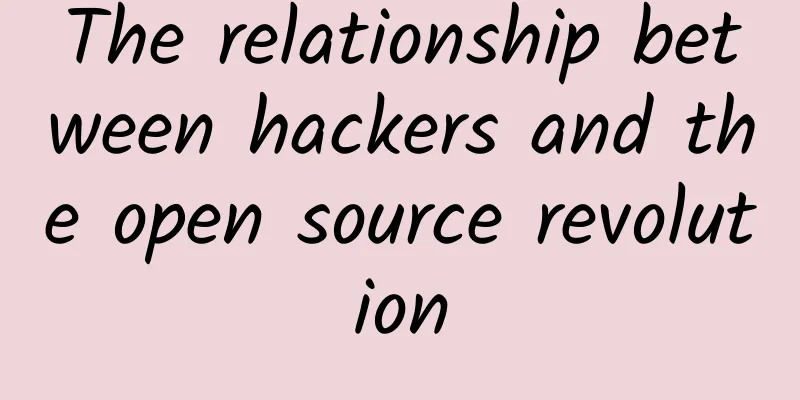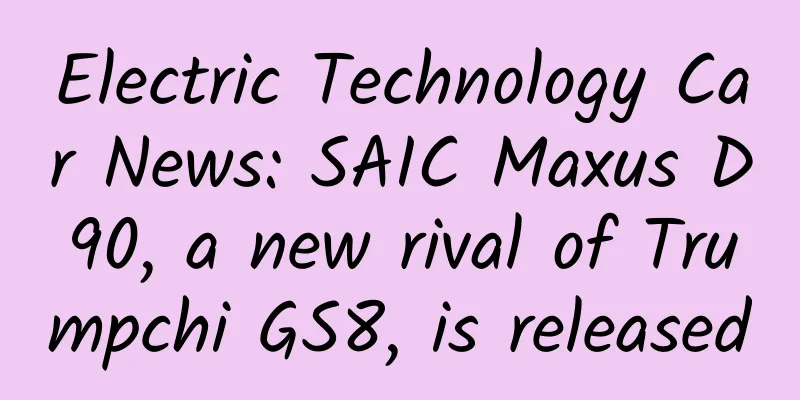The relationship between hackers and the open source revolution

|
This article corrects the confusion between "hacker" and "cracker" that the mainstream media has caused readers. It also considers the history, nature, attributes, ethics and attire of hackers. More importantly, if you are interested in becoming one of them, you can listen to other hackers' inner thoughts on why society treats them the way it does. Read on!
A new generation of hackers is turning open source into a powerful force in today's computer world. They are the heirs of the early hacker culture that flourished in the 1960s and 1970s when computers were new—part of a group that believes software should be shared so that everyone can benefit. Software creators, on the other hand, naturally disagree with the hackers' view. They choose to add digital security measures to keep their software secure. These expert programmers and networking geniuses trace their family tree back to the earliest time-sharing minicomputers and ARPAnet experiments. Members of this group coined the term "hacker." Hackers built the Internet and developed today's UNIX operating system. Hackers run online newsgroups and make the World Wide Web work. Thanks to relatively cheap computers and the Internet, the new hackers were more numerous, more efficient, and more united than their predecessors, bound together by a common goal—to write good software—and a common desire—that software should be free for everyone. In 1991, Linus Torvalds posted a message on an Internet newsgroup asking for suggestions on creating a better operating system. He created the project just for personal interest. He said that he would never be "big and professional" in this regard. In 1994, the first official version of Linux was released.
In their paper How Open Will the Future Be?, Marleen Wynants and Jan Cornelis discuss the economic, social, and cultural impact of free and open source software, suggesting that Linux is more than just a toy for hackers. With the help of Linux, open source hacker culture has emerged from underground. Amateur hacker programmers have begun to form alliances with software production and distribution departments. New companies and organizations have been established along with new products, licenses, and teams. In the spring of 1997, a group of leaders in the free software community gathered in California. This group included Eric Raymond, Tim O'Reilly, and VA Research President Larry Augustin, among others. They were concerned with finding a way to promote free software to people who had previously shunned the concept. These were the people the Free Software Foundation's "anti-commercial message" was aimed at (preventing the world from truly appreciating the power of free software). At Eric Raymond's insistence, the group decided that what they lacked largely was the ability to design marketing campaigns that would win attention, not just market share. Out of this discussion a new term was born to describe the software they were promoting: open source. A series of guidelines were developed to define open source software. However, there had been a hacker subculture of open source applications and Internet protocols that had been developed for many years, but without the explicit label "open source". Only in recent years, and especially after this meeting, has the term emerged in the public eye. In 1998, a Halloween document revealed Microsoft's anxiety. The document contained a series of confidential memos on free software, open source software, and especially Linux-related policies. Among the leaked documents were a series of responses to the original memos. The leaked documents and responses were published by Eric Raymond on Halloween 1998. Forced to admit that the memo did originate from within the company, Microsoft fired the engineers for personal behavior. "Linux has been deployed in mission-critical, public and excellent business environments," said Vinod Valloppillil, one of the authors of the memo. The document also acknowledges that open source software is trustworthy in the long term, that FUD (spreading fear, uncertainty and doubt) tactics cannot be used to combat it, and that recent case studies provide very striking evidence that its commodity quality can be matched/exceeded by OSS projects. FUD was a traditional marketing strategy at Microsoft that was recognized and understood internally. Examples of this strategy included announcing a non-existent product or spreading rumors that a competing product would cause Windows to crash. If you happen to bump into them and ask about their craft, hackers will cheerfully tell you that programming is the most fun you can have while wearing clothes, although clothes are not necessary. A hacker is someone who enjoys exploring the details of a computer and expanding its capabilities, as opposed to the majority of users who prefer to learn the minimum required. Originally, "hacker" was a term of respect among computer programmers, designers, and engineers. A hacker was the creator of that original program. To programmers, "hacker" means someone who has mastered the most nitty-gritty stuff: things that can make a computer do whatever they want it to do—whether the computer itself wants it to or not. Unfortunately, the word has become misused and given a negative connotation—someone who uses computers and networks to break into systems, destroy data, steal legitimate software, and perform other destructive or illegal actions. The exact term for that kind of person is actually "hacker." Hackers have heads full of ideas. Their brains are constantly collecting, consuming, or taking things apart and reassembling them. But they seem to be driven by a strong instinct or need to analyze and organize. When hackers first encounter technology, they don't absorb its form, but go straight to the details. They feed on the logic of the technology. When they communicate, they can speak or write down what they have learned very accurately. Hackers solve problems and build things, they believe in freedom and voluntary mutual assistance. The hacker spirit is not limited to the field of software (or hardware). The hacker essence is independent of the medium in which it works. The idea of hackerism has transcended the computer industry. The ideal hacker culture applies to anyone who is passionate about pursuing something. Burrell Smith, a key member of Apple's Macintosh computer team, said, "A hacker can do almost anything. You can also be a hacker carpenter. It doesn't have to be high-tech. I think it has to be craftsmanship and care about what you do." In his book Biopunk, Marcus Wohlsen gives the reasons why: The primal urge to tinker is an important prerequisite to being a hacker. In the hands of these talented practitioners, tinkering is an important form of creativity. It is a different brand of creativity, practiced in a different spirit, than the romantic image of the implied lone artist or genius inventor trying to create something out of nothing. Tinkering is generally about fiddling or tweaking, trying to squeeze a few more horsepower out of your Yamaha FZ 16 in the garage on weekends. But that still leaves the idea of "work that isn't really work." Jacking up your Jeep's shocks and putting low-pressure tires on isn't something you want to do, it's something you have to do. Tinkering is work for fun. Hackers love the fun of tinkering, but there is also mischief in their creed: just because the work is fun doesn't mean it's unimportant. "Play" in the hacker's sense is not only a way of entertainment, but also an attitude towards innovation, like a small move of winning with competitive energy and talent and rational envy. When playing chess, both the grandmaster and the average person have 16 pieces. But in the hands of the grandmaster, the game reveals its beauty and intellectual power. In the same way, a gifted craftsman can rearrange existing engine parts or snippets of computer code to create entirely new forms. For hackers, the logical framework of the mind needs to be extended to more and more common activities. You can ask hackers questions and feel the process of their mental accumulation before giving a definite answer. Maggie Sanders would drive her Volkswagen to Safeway every Saturday morning and on the way back she would ask her husband, “Will you help me with my groceries?” Bob Sanders would reply, “No.” Stunned, Maggie would do her own groceries. This happened a few times and she exploded, cursing him and demanding he explain why he wasn’t helping her. "That's a stupid question," he said. "Of course, I can't generate groceries for you. If you ask me, can I buy groceries for you, that's another matter." It was like Maggie submitted a program to the TX-0, and when it ran, it was found to have incorrect syntax, so it crashed. Until she debugged it successfully, the Bob Sanders Mental Computer would not run correctly. Wikipedia accurately explains "hacker ethics" as a general phrase: the moral values and philosophical standards of a hacker team. The early hacker culture and philosophy originated at the Massachusetts Institute of Technology (MIT) in the 1950s and 1960s. The term "hacker ethic" originated from journalist Stephen, whose 1984 book portrayed hackers as the heroes of the computer revolution. The guidelines of the hacker ethic make it easier to understand how computers evolved into the personal devices we know and rely on today. Hacker ethics is a new way of life full of philosophy, ethics and dreams. Although the content of hacker ethics has not been publicly debated and discussed, it has been silently recognized and accepted. As Stephen describes, "The hacker ethic has evolved into free and open source software (FOSS)." Hackers who truly follow the hacker ethic - especially those who are brave enough to practice it - have always been supporters of the free and open source software movement. The general principles of hacker ethics are: Using computers - and anything that might teach you something about how the world works - should be completely unrestricted. Always experiment! Hackers believe in breaking things down to understand systems, to understand the nature of the world, to see how things work, and to use that knowledge to create new and more interesting things. Most of them resent any person, physical barrier, or law that prevents them from doing so. Hacker's Strange Attire Hackers dress for comfort, function, and low maintenance, not particularly for appearance. They have no tolerance for suits or other formal attire. It is not uncommon for hackers to quit their jobs because they don't want to dress in a uniform. When they are asked to dress in a uniform for no apparent reason, they will try to break it, for example, by wearing a ridiculous, novel tie. Most hackers I know view a tie as a weapon that can cut off blood flow to the brain, objectively explaining the behavior of the person wearing it. A tie gives you a reputation as a super loser, like a power user who wears a suit without any skills - someone who uses root privileges on a UNIX system but has no idea what he is doing; the equivalent of a three-year-old playing with an AK-47. Under severe pressure, he may roll up his sleeves and loosen his tie, but it is useless. Female hackers almost never wear heavy makeup, and many don't wear any makeup at all. In his essay of the same name, Eric Steven Raymond lists, among other things, the essential skills a would-be hacker needs. He recommends the following five languages: Python, Java, C/C++, Perl, and Lisp. Python - This is a cleanly designed, well-documented, and easy-to-learn language for beginners. As a good first language, it is more than just a toy; it is very powerful and flexible, and well suited for large projects. Paul Graham points out that many hackers use Python because they like the source code style. This may seem like a frivolous choice of language. It's not as frivolous as it seems - when you're programming, you spend more time reading code than writing it. You treat your source code like a sculptor treats spots on pottery. So a language with ugly source code will drive a serious programmer crazy, just as pottery with lumps will drive a sculptor crazy. Java - Eric Raymond argues that Java is a great language to learn programming in. Most hackers today would probably disagree. The biggest objection is that Java is not extensible. Extensibility of a medium is part of the discovery process when programming, which includes understanding all the requirements and forces -- internal or external -- at the core of a system's design. James Gosling, the famous father of the Java language, said in his paper "Java: An Overview", "Highly dynamic languages like Lisp, TCL, and Smalltalk are often used for prototyping. One reason for their success is their high robustness; another is that they do not require early decisions. Java features exactly the opposite: it forces you to make choices explicitly." Just like the difference between Lisp and Java, Paul Graham pointed out in his book "Hackers and Painters" that Lisp is used to indicate the ideas and expressions of calculations, while Java is used to express complete programs. As James Gosling said, Java requires you to make decisions early. And once they are made, the system - a set of type declarations, compiler, and runtime system - is very difficult to change, even if it is due to an inadvertent mistake on your part. The effect is like putting a speed governor on your race car to reduce human damage. Hackers don't like languages that limit them. Hackers just want power. C/C++ - If you want to program seriously, you will have to learn C, the core language of UNIX. C++ and C are closely related, and if you already know one, it is not difficult to learn the other. However, neither is easy to learn for the first time. Perl - This is another particularly important language for hackers, and it is worth learning. It is widely used for dynamic web pages and system administration, so even if you never write Perl code, you should be able to read it. Lisp - Really serious hackers should consider learning Lisp. Learning Lisp is a profound introductory experience; even if you never actually use Lisp, the experience will make you a better programmer for the rest of your life. One of the most important steps any newbie can take to acquire hacker skills is to get a copy of Linux or BSD-Unix and install it on a personal computer. Yes, there are other operating systems in the world besides UNIX/Linux. But they are all distributed in binary form - you can't read such code, let alone modify it. Trying to learn to hack a Windows machine is like trying to learn to dance. UNIX is the operating system for the Internet. You can learn to use the Internet without knowing UNIX, but you can't be an Internet hacker without understanding UNIX. As a result, today's hacker culture is quite strongly UNIX-centric. So, get Linux, learn it, run it, modify it. Use it to surf the Internet. Read and modify code. You'll get better programming tools than you could ever dream of with Windows (including C, Lisp, Python, and Perl). You'll have fun and learn more than you ever thought possible, until you look back as an ace hacker. You have to earn the title of "hacker" instead of calling it. In the same article, Eric S Raymond mentions some valuable tips for early status in the hacker community. There are two things you can do to gain the respect of hackers (for a complete list, read "How to Become a Hacker" by Erics Raymond). Write open source software. The first (most core and traditional) is to write a program that other hackers find interesting or useful, and give away the source code to that program. The most respected demigods in the hacker community are those who have written a large program that meets a common need and are fully shared so that everyone can use it. Help test and debug open source software. Being out there debugging open source software is also a service to the hacker community. The world is not perfect, and we all spend a lot of our software development time debugging. That's why any open source author will tell you that good beta testers (who can clearly describe symptoms, pinpoint problems, tolerate bugs in a fast-release, and are willing to apply simple diagnostics) are as valuable as rubies. They can make a world of difference in a debugging phase filled with delays, exhausting nightmares, and minor damages. If you are a beginner, try to find a program that is under development and be a beta tester. It is a natural accumulation process from helping to test the program to helping to debug the program and then to helping to modify the program. In this way, you will not only learn a lot, but also make good friends with people who can help you in the future. I have to end by quoting Eric S Raymond again because he said it so beautifully: We half-jokingly say 'one world', but the only way to achieve this goal is to serve the world. That means the only way out for you and me is to learn how to think about this new way we are doing, how to try to reduce the user complexity of the default environment. Computers are tools for humans. Ultimately, the challenge of designing hardware and software is to design for humans -- all humans. The road will be long, and it won't be easy. But we owe it to ourselves and each other to get it right. May open source be with you! |
<<: Golden Gekko, a global mobile solutions provider, predicts the top ten mobile trends in 2015
>>: Cocos 2015 Developer Conference (Spring) is about to open
Recommend
Is there a flaw in Mars life detection? The latest research reveals embarrassing possibilities
Produced by: Science Popularization China Author:...
If you don’t choose the right method, no matter how much advertising money you spend, it will be wasted!
If you want to sell your product well, you have t...
How much does it cost to be an agent for a photo app in Yantai?
How much does it cost to be an agent for a photo ...
Changan Qiyuan A05 is officially launched, the digital electric drive super economical new family sedan starts at only 89,900 yuan!
On October 20, the "Digital Intelligence Qiy...
A drone "architect" has been invented. It can "build" 2 meters in half an hour. Could it become the future builder of Mars?
As humans greedily transform the Earth, their dre...
Analysis of Huaxizi and Winona’s private domain marketing!
Private domain marketing is not a new term, but p...
How to write copy that hits the user’s pain points?
Good copywriting needs to be revised. It is very ...
Interesting Talk | Why haven’t humans formed a large number of fossils? Is it because human “skeletons” do not have the conditions to form?
I believe everyone has seen photos of fossils. Sc...
The largest in Asia! It will be put into operation next Monday!
The picture shows Beijing Fengtai Station. (Photo...
Look here, how a marine life version of "Game of Thrones" is being staged?
The coral reef area of the Indian Ocean and the...
The gamma photon scientific data of the "Wukong" dark matter particle detection satellite is officially released
On September 7, 2021, the National Space Science ...
APP Packaging Party’s Business Secrets
Low threshold, zero cost and high income have led...
How does Nayuki Tea develop its private domain?
Recently, "Nayuki drastically reduces prices...
300 JD Experience Stores point the way for the industry How will the fourth retail revolution reshape the market landscape
With the continuous improvement of technology, th...


![Chen Naiba's Douyin Book List Performance Course, the core skills and operating standards for quickly starting an account [Video Course]](/upload/images/67cc29ea1fbef.webp)






